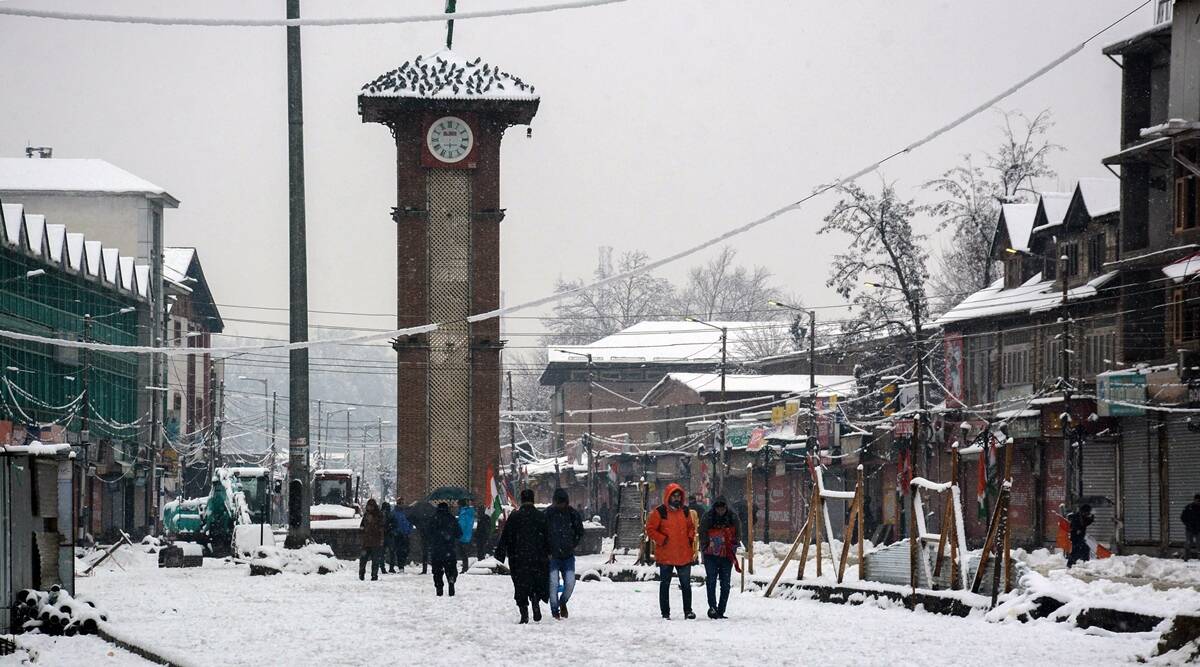The Supreme Court rejects a challenge to the delineation of Jammu and Kashmir.

Monday, the Supreme Court dismissed a petition challenging the Centre’s decision to establish a Delimitation Commission for the Union Territory of Jammu and Kashmir in accordance with the 2002 Delimitation Act and the Commission’s delimitation of assembly constituencies based on the 2011 Census.
While the court found “absolutely no substance in any of the petitioners’ arguments,” it cited the J&K Reorganisation Act and stressed that its “findings…are based on the fact that the 2019 exercise of power under clauses (1) and (3) of Article 370 of the Constitution is legal.”
“We are aware that the validity of the exercise of the aforementioned authorities is the subject of pending proceedings in this Court. Consequently, we have not addressed the problem of validity. The bench of Justices S K Kaul and A S Oka noted that nothing in this decision could be regarded as an endorsement of the exercise of powers under clauses (1) and (3) of Article 370 of the Constitution.
Petitioners Haji Abdul Gani Khan and Mohammad Ayub Mattoo, both of Srinagar, stated that delimitation cannot take place on the basis of the 2011 Census and must either be based on the 2001 Census or delayed until “the first census after the year 2026.”
They cited the Delimitation Act of 2002, which states that the “Commission shall readjust the division of each State into territorial constituencies for the purpose of elections to the House of the People and the State Legislative Assembly on the basis of the census figures ascertained in the [2001] census.”
The bench rejected the argument and stated, “It is crucial to note that, pursuant to the J&K Reorganisation Act, the year 2001 has been replaced by 2011 in reference to the Legislative Assembly of the Union Territory of J&K.”
The court ruled: “…therefore, the Delimitation Commission established under the Order dated 6th March 2020 had to undertake the exercise of delimitation or readjustment on the basis of the census figures of 2011, as the earlier exercise of delimitation of the constituencies of the erstwhile State was not based on the census figures.”
It declared: “…for the reasons described above, the exercise of delimitation/ readjustment of constituencies done by the Delimitation Commission for the purpose of partitioning the Union Territory into 90 constituencies based on the 2011 census results is not illegal.”
Concerning the legality of the Centre’s March 6, 2020 notification establishing a Delimitation Commission, the bench stated, “The J&K Reorganisation Act, which created the two new Union territories, assigns the responsibility of readjusting constituencies to the Delimitation Commission under the Delimitation Act, 2002.”
“Article 4 of the Constitution authorises the Parliament to include in the law enacted pursuant to Article 3 for the establishment of new States and Union territories such measures as may be necessary to give effect to the contents of the law. Such a statute may also include measures about representations in Parliament and the legislature of the concerned state or states.
Consequently, a law enacted under to Article 3 may always include provisions for the readjustment of constituencies in newly formed states or Union territories through the Delimitation Commission. “Accordingly, we hold that there is no illegality linked with the establishment of the Delimitation Commission pursuant to the challenged Order dated March 6, 2020,” the court ruled.



